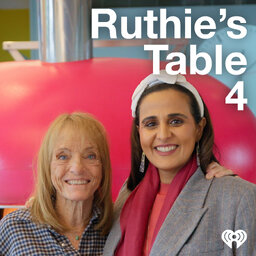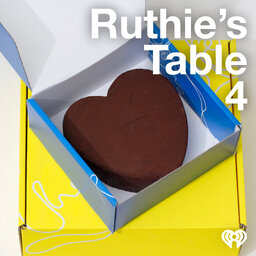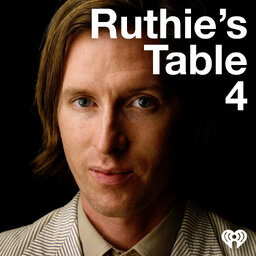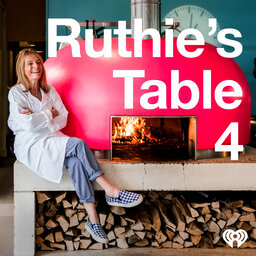Ian McKellen
I’m often asked about the inspiration for Ruthie’s Table 4. The answer is easy. Two words — Ian McKellen.
For some years, Richard and I invited actors to perform at our home. Ian ended his performance with a reading of a recipe for Ribollita, a traditional Tuscan soup. Compelling as any sonnet, we were all spellbound.
Ian is known to everyone as different characters — Macbeth, King Lear, Gandalf. I think of him as one character, inspiring, kind and brave. For this podcast, we went to his beautiful house overlooking the Thames. A morning and a conversation I shall always remember.
Ruthie’s Table 4, made in partnership with @me_andem
In 1 playlist(s)
Ruthie's Table 4
Welcome to Ruthie's Table 4 hosted by Ruthie Rogers, co-founder and chef of The River Cafe in London…Social links
Follow podcast
Recent clips

Her Excellency Sheikha Al-Mayassa bint Hamad bin Khalifa Al Thani
28:28

Bonus: Valentine's Day At The River Cafe
12:17

Wes Anderson At Gagosian, Paris
18:08
 Ruthie's Table 4
Ruthie's Table 4